Projects
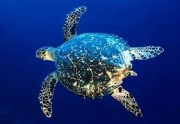
The project is studying the status of threatened marine (green, hawksbill and flatback) turtles and dugongs in the Torres Strait and threats to these populations. The researchers will investigate links between different populations of dugongs and turtles in terms of movement and habitat use. They will also assess the abundance of dugongs in the Torres Strait using aerial surveys.
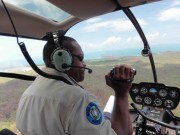
This project examined the status, diversity and condition of mangroves and freshwater habitats in the Torres Strait. This provided a baseline against which future changes can be assessed and will also enable planning for adaptation to potential sea level rise/increased storm surge. The project built on Torres Strait Islanders' knowledge and understanding of mangrove habitats, with scientists working in partnership with Traditional Owners.
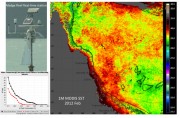
This project conducted a biodiversity assessment of coral communities on Torres Strait reefs to establish a baseline of coral condition and start a longer-term monitoring program of corals in the region. This monitoring looked for changes in the condition of coral reefs in the Torres Strait. As part of this project, an early warning system was established for coral bleaching.
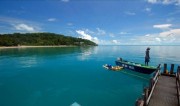
The project team will assess and describe all existing and potential sources of pollution to the Torres Strait marine environment. This will be combined with information on water movement patterns to assess the hazard (and to some degree risk) of these pollutant sources to marine ecosystems and public health. The project will use the results to make recommendations to managers on priority pollutant management in the region, and to design a basic monitoring program for reporting on the status of water quality in the Torres Strait.
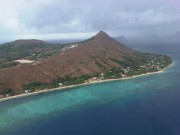
This project is exploring potential future scenarios for the Torres Strait and will identify 'no regrets' strategies to improve livelihoods and achieve sustainable economic development. The project will help to deliver ongoing initiatives promoting climate adaptation, alternative livelihoods and economic development in the region.
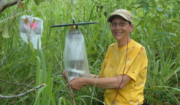
This project focuses on improving methods to detect the introduction of exotic animal diseases into the Torres Strait. The researchers will examine the environmental factors that influence the establishment and persistence of wildlife diseases in the region. They will study insect disease vectors and the incidence of disease in birds in a range of habitats in order to identify where disease risk is greatest.
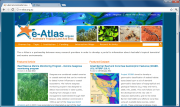
The eAtlas is a website, mapping system and set of data visualisation tools for presenting research data in an accessible form that promotes greater use of this information. The eAtlas will serve as the primary data and knowledge repository for all NERP Tropical Ecosystems Hub projects, which focus on the on the Great Barrier Reef, Wet Tropics rainforest and Torres Strait. The eAtlas will capture and record research outcomes and make them available to research-users in a timely, readily accessible manner. It will host meta-data records and provide an enduring repository for raw data. It will also develop and host web visualisations to view information using a simple and intuitive interface. This will assist scientists with data discovery and allow environmental managers to access and investigate research data.
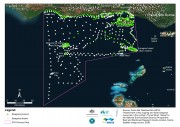
This project fills a critical information gap for dugong and turtle habitat management in the Torres Strait.
Runoff from the Fly River in Papua New Guinea influences water quality conditions in the Torres Strait (TS) region however the extent and frequency of this influence, and the potential ecological
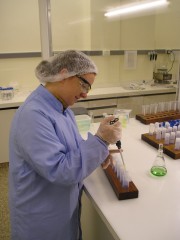
This study addresses concerns regarding the impacts of mine-derived pollution on the marine resources of the Torres Strait.
Runoff from the Fly River in Papua New Guinea (PNG) influences water quality conditions in the Torres Strait region.



